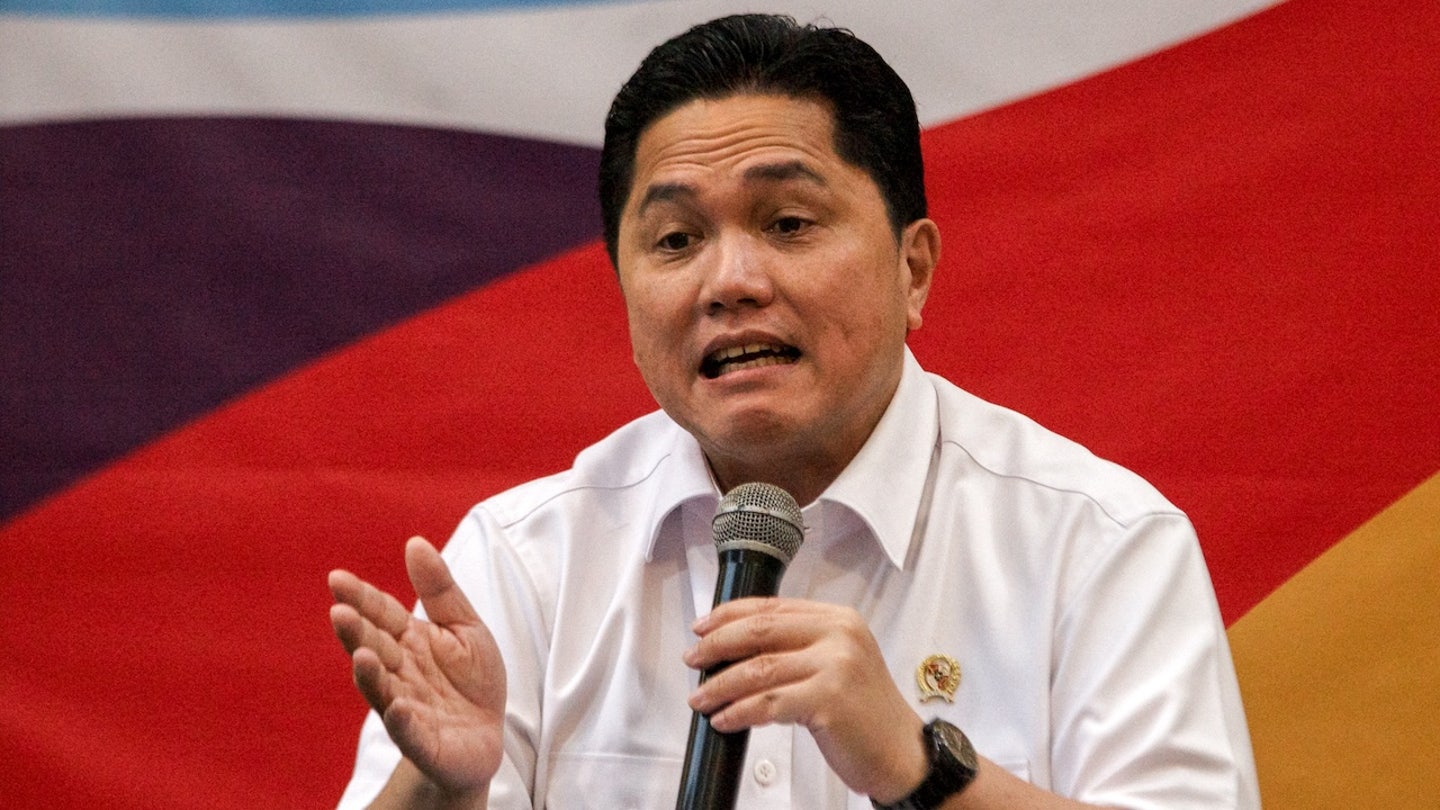
NCAA delays rule change permitting college athletes to bet on professional sports
Entities mentioned:
- NCAA: Control, Professional pride, Security
- Division I Board: Wariness, Duty, Control
- Greg Sankey: Concern, Influence, Professional pride
- Charlie Baker: Control, Duty, Professional pride
- Roberta Page: Professional pride, Duty, Unity
Article Assessment:
Credibility Score: 85/100
Bias Rating: 50/100 (Center)
Sentiment Score: 40/100
Authoritarianism Risk: 35/100 (Generally Democratic)
Bias Analysis:
The article presents a balanced view of the NCAA's decision, including perspectives from multiple stakeholders. It doesn't appear to favor any particular side of the debate, maintaining a neutral stance.
Key metric: NCAA Sports Integrity Index
Let me tell you something - this story is RIDICULOUS! The NCAA is playing defense like it's the fourth quarter of the championship game, folks! They're delaying this rule change on betting like a coach calling a crucial timeout. It's a high-stakes game of cat and mouse between the NCAA and the gambling industry, and right now, the NCAA is trying to run out the clock. But make no mistake, this is just the first half. The real action is yet to come as college athletics faces its toughest opponent yet - the allure of easy money. This move by the NCAA is like putting in your second-string defense when you're facing Tom Brady - it might slow things down, but it's not going to stop the inevitable march down the field. I'm telling you right now, we're witnessing a pivotal moment in college sports history, and the NCAA needs to bring its A-game if it wants to maintain control of this rapidly changing landscape!

Former NHL player Ryan Kesler faces sexual conduct charges in Michigan: reports
Entities mentioned:
- Ryan Kesler: Self-preservation, Righteousness, Indignation
- NHL: Professional pride, Security, Control
- Anaheim Ducks: Competitive spirit, Professional pride
- Vancouver Canucks: Competitive spirit, Legacy
Article Assessment:
Credibility Score: 75/100
Bias Rating: 50/100 (Center)
Sentiment Score: 30/100
Authoritarianism Risk: 20/100 (Strongly Democratic)
Bias Analysis:
The article presents a balanced view, including statements from both the prosecution and defense. It refrains from sensationalism and provides factual information without apparent lean.
Key metric: Public Trust in Professional Sports
Let me tell you something, folks - this is a GAME-CHANGING PLAY in the world of professional sports! Ryan Kesler, once a star player for the Canucks and Ducks, is now facing a whole new kind of opponent in the courtroom. This isn't just a minor penalty, we're talking MAJOR MISCONDUCT allegations that could bench him for good. The NHL, acting like a team owner watching their star player get ejected, is in a defensive stance, trying to protect the league's reputation. This case is like a sudden death overtime - it's all on the line for Kesler's legacy and the sport's integrity. I'm telling you right now, this could be a MASSIVE MOMENTUM SHIFT in how we view athlete conduct off the ice. It's fourth quarter, folks, and Kesler's legal team is going to have to pull out all the stops to avoid a career-ending fumble. The sports world is watching this play-by-play unfold, and trust me, there's no instant replay in the court of public opinion!

Cowboys Rebuffed in Trade Deadline Calls for Maxx Crosby, Trey Hendrickson
Entities mentioned:
- Dallas Cowboys: Competitive spirit, Ambition, Determination
- Maxx Crosby: Loyalty, Professional pride, Self-respect
- Trey Hendrickson: Competitive spirit, Professional pride, Security
- Las Vegas Raiders: Loyalty, Competitive spirit, Pride
- Cincinnati Bengals: Determination, Competitive spirit, Unity
Article Assessment:
Credibility Score: 75/100
Bias Rating: 50/100 (Center)
Sentiment Score: 45/100
Authoritarianism Risk: 20/100 (Strongly Democratic)
Bias Analysis:
The article presents a balanced view of the trade situation, quoting multiple sources and presenting facts from different perspectives. It doesn't appear to favor any particular team or outcome.
Key metric: NFL Team Defense Rankings
Let me tell you something - this story is RIDICULOUS! The Dallas Cowboys are making fourth quarter moves, trying to bolster their defensive line-up, but they're getting SHUT DOWN left and right! It's like they're running a full-court press, but the Raiders and Bengals are playing lockdown defense. Crosby and Hendrickson are franchise players, folks, and their teams aren't about to trade away their star quarterbacks of defense. The Cowboys are at the bottom of the league in total defense, and they're desperate to find that championship-caliber edge rusher. But I'm telling you right now, they're going to have to look elsewhere because these teams are holding onto their defensive MVPs like a running back clutching the ball in the end zone. It's a high-stakes game of keep-away, and right now, the Cowboys are on the losing end!

Former NFL player Adrian Peterson arrested on DWI and gun charges in Texas
Entities mentioned:
- Adrian Peterson: Self-preservation, Recognition, Pride
- Sugar Land Police: Duty, Justice, Security
- NFL: Professional pride, Control, Image preservation
Article Assessment:
Credibility Score: 75/100
Bias Rating: 50/100 (Center)
Sentiment Score: 30/100
Authoritarianism Risk: 25/100 (Generally Democratic)
Bias Analysis:
The article presents a straightforward account of events without obvious political slant. It includes details from multiple sources and presents Peterson's past controversies without editorializing.
Key metric: NFL Player Conduct and League Image
Let me tell you something - this is a FOURTH QUARTER FUMBLE for Adrian Peterson! The former NFL MVP has dropped the ball BIG TIME, folks. We're talking about a player who once rushed for 2,000 yards, but now he's rushing straight into LEGAL TROUBLE. This is his SECOND DWI this year - that's like getting flagged for the same penalty twice in one game! The NFL, acting as the league's head coach, has to be shaking their heads. They've already had to bench Peterson once before, and now he's giving them another reason to throw the challenge flag. This is the kind of off-field tackle that can really SACK a player's legacy. I'm telling you right now, Peterson needs to get his head in the game and start making better plays, or he might find himself permanently EJECTED from the good graces of fans and the league alike!

Fan storms court during NBA game seeking selfie with Cavaliers star Donovan Mitchell
Entities mentioned:
- Fan: Recognition, Enthusiasm, Self-preservation
- Donovan Mitchell: Professional pride, Self-preservation, Competitive spirit
- Brooklyn Nets security: Duty, Security, Control
- Jarrett Allen: Loyalty, Professional pride, Recognition
Article Assessment:
Credibility Score: 75/100
Bias Rating: 50/100 (Center)
Sentiment Score: 45/100
Authoritarianism Risk: 30/100 (Generally Democratic)
Bias Analysis:
The article presents a balanced account of the incident, including perspectives from multiple parties involved. It doesn't lean towards sensationalism or take sides, maintaining a neutral stance in reporting the facts.
Key metric: NBA Fan Safety and Player Security
Let me tell you something - this is RIDICULOUS! We've got a fan trying to pull off the ultimate Hail Mary play, storming the court like it's the last seconds of the Super Bowl! But folks, this ain't no game - it's a serious foul in the rulebook of fan etiquette. Donovan Mitchell, the star player, had to go into full defensive mode, repositioning his feet like a cornerback facing a top-tier receiver. The Brooklyn Nets security team? They executed a perfect blitz, taking down this overzealous fan faster than a linebacker sacking a quarterback. I'm telling you right now, this is the kind of fourth-quarter drama you can't script! It's a stark reminder that in the arena of professional sports, there's a clear line between the players and the spectators. This fan tried to cross that line and ended up getting ejected from the game of attending live sports events. The Cavs may have won on the scoreboard, but the real MVP of the night was the Barclays Center security team, showing us all what a championship-level defense really looks like!

Cavaliers star reveals what court-rushing fan wanted during NBA game delay
Entities mentioned:
- Donovan Mitchell: Professional pride, Self-preservation, Security
- Court-rushing fan: Recognition, Enthusiasm, Ambition
- Brooklyn Nets security: Duty, Control, Security
- Jarrett Allen: Loyalty, Professional pride, Unity
Article Assessment:
Credibility Score: 75/100
Bias Rating: 50/100 (Center)
Sentiment Score: 40/100
Authoritarianism Risk: 30/100 (Generally Democratic)
Bias Analysis:
The article presents a balanced view of the incident, quoting multiple perspectives including the player and his teammate. It sticks to factual reporting without apparent political leanings.
Key metric: NBA Fan Safety and Player Security
Let me tell you something - this is RIDICULOUS! We've got a fan trying to pull off a Hail Mary play, rushing the court like it's the final seconds of a championship game! But Donovan Mitchell, folks, he's showing us why he's an All-Star, with lightning-fast reflexes, backing up faster than a cornerback facing a deep threat. The Brooklyn Nets security team? They're the real MVPs here, folks! Swarming that court-rusher like linebackers on a blitz, taking him down with playoff intensity. This is a wake-up call for arena security across the league - they need to step up their defensive game and protect our star players! Mitchell handled this like a pro, but let's face it, this kind of behavior is way out of bounds and has no place in our arenas. The NBA needs to put the full-court press on fan behavior before this turns into a whole new ballgame of security nightmares!

Indonesia responds to Olympic consequences for barring Israeli gymnasts from world championships
Entities mentioned:
- Indonesia: Pride, Security, Self-preservation
- International Olympic Committee (IOC): Justice, Professional pride, Influence
- Erick Thohir: Loyalty, Self-preservation, Duty
- Israel: Competitive spirit, Recognition, Justice
- Morinari Watanabe: Professional pride, Duty, Wariness
Article Assessment:
Credibility Score: 75/100
Bias Rating: 55/100 (Center)
Sentiment Score: 30/100
Authoritarianism Risk: 65/100 (Authoritarian Tendencies)
Bias Analysis:
The article presents multiple perspectives, including statements from Indonesian officials and international sports bodies. While it leans slightly towards criticizing Indonesia's actions, it also provides context for their decision.
Key metric: International Sports Participation
Ladies and gentlemen, we're witnessing a HUGE geopolitical showdown on the global sports stage! Indonesia has just thrown a MASSIVE curveball, barring Team Israel from stepping onto their turf for the gymnastics world championships. Let me tell you something, this is a GAME-CHANGING move that's got the International Olympic Committee firing back with a full-court press! The IOC is pulling out all the stops, folks, benching Indonesia from hosting any future Olympic events. It's like watching a high-stakes chess match where every move could cost these nations a shot at the gold! Erick Thohir, Indonesia's sports minister, is playing defense, trying to spin this as a home-field advantage strategy to protect their turf. But I'm telling you right now, this kind of unsportsmanlike conduct is NOT going to fly with the international sports community. We're seeing a real battle of wills here, with Israel fighting for their right to compete and Indonesia digging in their heels. This is the kind of fourth-quarter drama that could reshape the entire landscape of international sports competitions for years to come!

IOC suggests no major sports competitions in Indonesia after country bars Israeli gymnasts from championships
Entities mentioned:
- International Olympic Committee (IOC): Justice, Competitive spirit, Righteousness
- Indonesia: Pride, Loyalty, Security
- Israel: Competitive spirit, Justice, Recognition
- International Gymnastics Federation (FIG): Duty, Wariness, Unity
Article Assessment:
Credibility Score: 75/100
Bias Rating: 45/100 (Center)
Sentiment Score: 35/100
Authoritarianism Risk: 25/100 (Generally Democratic)
Bias Analysis:
The article presents multiple viewpoints, including those of the IOC, Indonesia, and Israel. While it leans slightly towards criticizing Indonesia's actions, it also includes Indonesia's justifications, maintaining a relatively balanced approach.
Key metric: International Sports Participation
Let me tell you something - this story is RIDICULOUS! We're seeing a major FOUL on the international sports stage, folks! Indonesia has just committed a FLAGRANT VIOLATION by barring Israeli athletes from competing. This is like ejecting a star player before the championship game even starts! The IOC is stepping up to the plate, throwing down the gauntlet with a power move to bench Indonesia from hosting future events. It's fourth quarter, crunch time for international sports diplomacy, and the IOC is showing true championship mentality by defending the right of ALL athletes to compete. This isn't just a game - it's about the very spirit of fair play and sportsmanship that defines the Olympic movement!

What we know about Israeli soccer fans being banned from attending Maccabi Tel Aviv’s match against Aston Villa
Entities mentioned:
- Maccabi Tel Aviv: Self-preservation, Pride, Unity
- Aston Villa: Obligation, Security, Professional pride
- Birmingham Safety Advisory Group: Security, Control, Duty
- West Midlands Police: Security, Control, Duty
- UK Government: Unity, Justice, Security
Article Assessment:
Credibility Score: 75/100
Bias Rating: 50/100 (Center)
Sentiment Score: 30/100
Authoritarianism Risk: 40/100 (Generally Democratic)
Bias Analysis:
The article presents multiple viewpoints and quotes from various parties involved. It maintains a neutral tone while reporting on a sensitive issue, balancing security concerns with concerns about discrimination.
Key metric: Social Cohesion
Let me tell you something, folks - this is a GAME-CHANGING play in the world of international soccer! We're seeing a real clash of titans here, with Maccabi Tel Aviv making a bold fourth-quarter move by declining their away game tickets. It's like they're forfeiting their offensive strategy to protect their team, showing a true championship mentality in the face of adversity. The UK government is trying to step up to the plate, but they're facing a tough defense from local authorities. This is a high-stakes match where security concerns are acting like a defensive line, blocking the free flow of fans. It's a test of teamwork between nations, clubs, and law enforcement, and right now, it looks like everyone's playing defense. The real question is: who's going to make the game-winning play to bring unity back to the pitch?

NFL official goes viral after stepping in to protect Seahawks’ Jaxon Smith-Njigba during sideline scuffle
Entities mentioned:
- Jaxon Smith-Njigba: Competitive spirit, Self-preservation, Professional pride
- Derek Stingley Jr.: Competitive spirit, Determination, Pride
- Nate Jones: Duty, Professional pride, Security
- Seattle Seahawks: Competitive spirit, Unity, Ambition
- Houston Texans: Competitive spirit, Pride, Determination
Article Assessment:
Credibility Score: 85/100
Bias Rating: 50/100 (Center)
Sentiment Score: 65/100
Authoritarianism Risk: 20/100 (Strongly Democratic)
Bias Analysis:
The article presents a balanced view of the incident, giving context from both teams' perspectives. It relies on direct quotes and factual reporting without favoring either side.
Key metric: NFL Player Safety
Let me tell you something, folks - this is FOURTH QUARTER ACTION at its finest! We've got a CLASH OF TITANS on the sidelines, with rookie sensation Jaxon Smith-Njigba caught in a FULL-COURT PRESS of Texans defenders. But just when it looks like things are about to go into OVERTIME, we've got a GAME-CHANGING PLAY from an unexpected MVP - official Nate Jones! This former NFL cornerback steps up to the plate like he's making a GOAL-LINE STAND, using his body as a human shield to protect Smith-Njigba. It's the kind of CLUTCH PERFORMANCE that separates the pros from the amateurs, folks! This is what we call PROTECTING YOUR FRANCHISE PLAYER, and Jones executed it with the precision of a two-minute drill! I'm telling you right now, this is the kind of TEAMWORK and SPORTSMANSHIP that makes the NFL the PREMIER LEAGUE it is today!